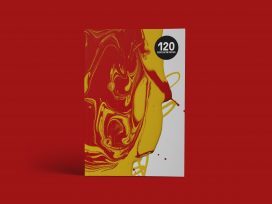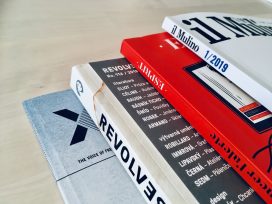In the morning, I signed up on the ground floor of Yakutsk University as an official participant of the Folklore Conference. The organizers were truly generous in their preparation of what was, by local standards, an exceptional international event; for the obligatory enrolment fee of one hundred dollars, foreign guests were provided with accommodation in one of the finest Yakutsk hotels, including full-board. So I took my backpack and left my pharaohs for something better, a four-floor building near the Victory Square with a nice view of an Orthodox church. From the early morning, the corridors were full of ethnographers and people in regional dress. I passed groups of people discussing new books on shamanology in Italian, French, or English, and from different places I could hear guttural singing or drums. I was both terrified and excited since there was no doubt that over the course of the following days, my hotel would be full of ancient ghosts.
As I unpacked, a slim young Yakut hostess brought in my elderly, grey-haired roommate, who introduced himself as Professor Dashinim Sandjievitch Dugaroff, a Buryat shamanologist from Ulan-Ude. The girl’s name was Tanya and had the narrowest eyes of all the people at the conference. She greeted me in good English and informed me that the program would begin at 2 pm. When she had left, professor Dugaroff asked me whether I was an ethnographer or a folklorist, but I had to disappoint him by admitting to merely being a journalist.
The main programme of the conference took place in a huge building of the Institute of Humanitarian Research. As I approached, I noticed an increasing numbers of people in regional dress in the streets. Old women and men dressed in clothes made of reindeer leather with fur trim and embroidered with beads; those living reminders of ancient traditions from almost all parts of Siberia, all of them wearing participant badges pinned up next to their hearts, disappeared through the heavy, ornamented gates of the concrete, giant, bunker-like research institute of humanity. Behind them, they intermingled with the Yakut, Russian, and foreign folklorists, shamanologists, ethnographers, and journalists forming a large family whose members hugged, greeted, and introduced one another, took pictures, traded books and traditional souvenirs, rehearsed singing and drumming, exchanged visiting cards, and conversed.
According to my information, the conference was attended by the elite of Russian ethnography and folklore together with the guests from America, Canada, Italy, Southern Korea, as well as Doctor Mihaly Koppany from Hungary – Honorary President of the conference and Chairman of the Union of European Shamanologists.
My head was spinning, I knew I couldn’t be everywhere and shoot everything I would have liked to, but I bravely ran along the corridors with my camera shooting all the mingling of styles, trading as well as hugging, fragments of drummers’ improvisations, the organizers’ cries, and the agitation of the foreign guests who could not speak Russian. It wasn’t until the formal introductory speeches, which were of little interest to me, and during which Yakut officials and heads of scientific institutions took their turns in speaking behind the lectern in the main hall with an incredibly high ceiling, recorded by cameramen from local television channels, that I managed to calm down and find my bearings. To me, the most noteworthy speaker was Professor Krayoff, a relatively young yet widely respected Russian musicologist from Yakutsk University. Heavily built and with a crew cut, he was an excellent speaker and, judging by his speech, a true intellectual destined to a remarkable academic career. During the break before the main programme of the conference, he chatted cheerfully to a group of Ugedey people whom he was clearly well acquainted with. He tried to play their wooden wind instruments and a tiger lure and made jokes about how lucky we were that there were no tigers nearby.
Published 27 June 2006
Original in Czech
First published by Revolver Revue 63 (2006) (Czech version)
Contributed by Revolver Revue © Martin Rysavy/Revolver Revue Eurozine
PDF/PRINTNewsletter
Subscribe to know what’s worth thinking about.



